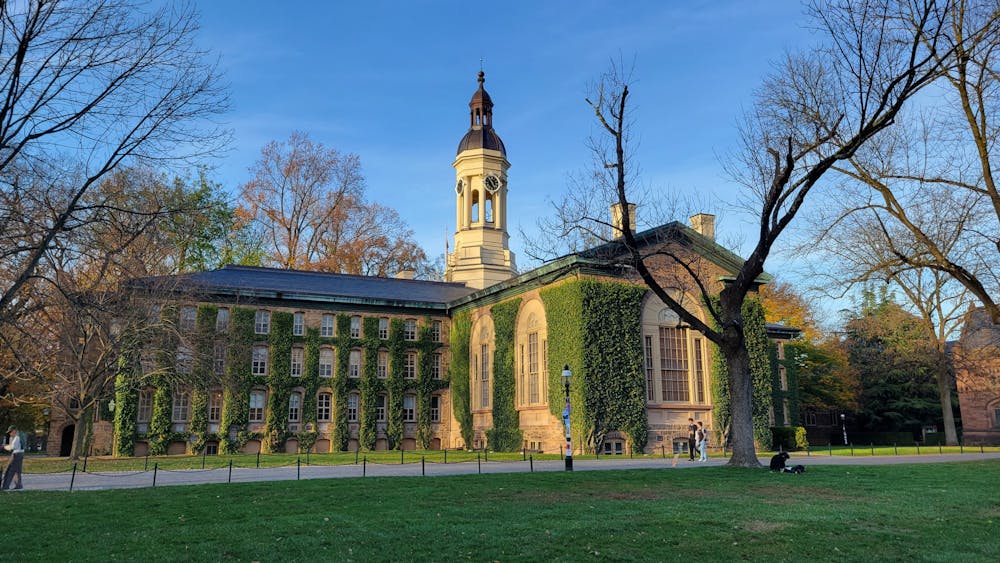The University’s second Diversity, Equity, and Inclusion Report highlighted the University’s goal of increasing diversity in academic hiring. While the demographics of non-tenure-track faculty more closely mirror that of the undergraduate student body, tenured faculty remain overwhelmingly white and male.
Tenure essentially guarantees employment for a professor until retirement. The modern conception of tenure is more than 80 years old and has supported as an important safeguard for academic freedom. But the process of obtaining it has been characterized as opaque and, at times, exclusionary.
What is tenure?
Tenured professors are granted a position which cannot be revoked except in extraordinary circumstances, such as severe incompetence, major neglect of duty, or violations of University rules.
According to the American Association of University Professors, tenure serves to safeguard academic freedom by allowing professors to conduct research without fear of losing their positions. It also promotes stability within a university, as faculty members can “develop ties with the local community, pursue ongoing research projects, and mentor students and beginning scholars over the long term.”
Who is tenure available to?
In Fall 2021, 77 percent of assistant, associate, and full professors at Princeton were tenured.
According to the University’s Rules and Procedures of the Faculty, all full professors and some associate professors are tenured, appointed “without express limitation as to term.” Associate professors without tenure are typically considered for tenure after their initial three-year contract.

The majority of the University’s 1,285 faculty are full professors (528), followed by 115 associate professors, 190 assistant professors, and 316 lecturers.
Assistant professorships are also tenure-track positions. Assistant professors typically begin with a three-year term, which may be renewed to up to six years total. Afterward, they may be promoted to associate professor; if they are not, their contract with the University expires (although the University reserves the ability to reappoint them for an additional year before they depart).
Lecturers, however, have even less job security. Their contracts are normally renewed on an annual basis, though some can last for up to three years. After a maximum of seven years, lecturers may be promoted to a higher rank in the faculty. Otherwise, they are typically offered a reduced-time position (40 percent or less of a full-time job), or their contracts expire.
Additionally, there are notable demographic differences in the professorial ranks. As of the 2022–23 academic year, 78 percent of full professors, who are all tenured, are white and 72 percent are men. Meanwhile, associate professors are 73 percent white and 54 percent male, while assistant professors are 49 percent white and 56 percent male. Among the non-tenure-track faculty, such as lecturers, 57 percent are white and 48 percent are men.

What is the process for granting tenure?
Recommendations for tenure are normally made after a “formal consultation” with the tenured faculty of the candidate’s program. The Faculty Advisory Committee on Appointments and Advancements, more colloquially known as C/3, chaired by Christopher Eisgruber ’83, vets and submits candidates to the Board of Trustees. The committee’s six members, all full professors, currently represent the departments of Art and Archaeology/American Studies, Physics/Astrophysical Sciences, Psychology/Public Affairs, Politics, Music, and Electrical and Computer Engineering.
In many ways, the University’s tenure process is similar to many other schools, with a multi-year probationary period, followed by an intensive faculty review and a final determination from the president and board of trustees.
For full professors, “abilities as an outstanding scholar and teacher with the capacity to make important contributions to the department shall be essential qualifications for appointment,” says the University’s faculty handbook.
However, the University’s tenure process has also drawn frustration for not being transparent. In June 2022, a group of over 200 students and faculty protested its decision not to grant tenure to Erin Huang, an assistant professor of East Asian studies and comparative literature.
In an opinion piece in The Daily Princetonian in support of Huang, Ellen Li ’22 and Junnan Chen GS called tenure “a black box.”
“We have heard the argument that the confidentiality of tenure review is supposed to encourage honesty, but secrecy could just as easily be used to cover up bias and malfeasance,” they wrote.
The process is similarly intricate at the University’s peer institutions. At Yale, for example, the current process was only formalized as recently as 2016. Incoming professors generally receive the rank of assistant professor and begin the tenure process in their sixth year. If they are denied tenure at any point during this process, their employment ends when their contract runs out.
Additionally, tenure does not necessarily prevent a faculty member from being fired in extenuating circumstances. In May 2022, the University dismissed Joshua Katz from his tenured position in the classics department after finding that Katz had “misrepresented facts” during a 2018 inquiry into a consensual relationship he had with an undergraduate student in the mid-2000s.
“These actions were not only egregious violations of University policy, but also entirely inconsistent with his obligations as a member of the Faculty,” the University said in a statement following Katz’s dismissal.
Miriam Waldvogel is an Assistant News Editor for the ‘Prince.’
Kelly Kim is a news contributor for the ‘Prince.’
Please direct any correction requests to corrections[at]dailyprincetonian.com.
Correction: This piece has been updated to clarify that only the candidate’s department or program is usually consulted, that Eisgruber chairs the C/3, and that the departments listed are the departments of the current members of the C/3, not permanent slots. This piece has also been updated to clarify that assistant professors may receive an additional year on their contract if they do not get tenure. The ‘Prince’ regrets these errors.








